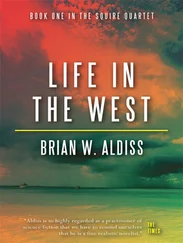When I rolled into Mandalay in our signal truck, I was all but prostrate from dysentery, though still working. The city had once been a seat of Buddhist learning, and its hill was covered with white icing pagodas, many of them damaged in the fighting. The thick walls of Fort Dufferin were also much damaged. But Slim had given orders that Mandalay should not be bombed.
It was an empty city, doomed and desolate. The smell of corruption hung over it, while birds sat on trees overhead, waiting. Stray dogs wandered about the streets, many of them suspiciously fat, but disconsolate. Perhaps they, like us, felt a sense of anti-climax.
Before we left Burma, there was one more adventure. 2 Div had completed its task with the defeat of the Japanese in the plains and the retaking of Mandalay. It was the task of other units to drive the Japs south towards Rangoon and, if possible, eliminate them entirely. We were to be flown out – an unusual operation in those days on that front.
I was one of the rear detail. Four of us manned a skeleton signal office in a small tent. After we had passed the last traffic, we closed down for good. There was now no one to answer our signals.
The radio and line apparatus we loaded into a Dodge truck, which set off into the wilderness. We returned to pick up our kit. We had camped under a large tree with generously spreading branches. For the flight back to a base in Bengal, we were allowed only 40 lbs. of personal kit; the rest had to be dumped – pegdoed, in our corruption of Urdu. A lot of pegdoing went on in India and Burma. So we got our packs on our backs and our kitbags on our shoulders with our bivouacs and mosquito nets, and started to walk to the airfield. Behind us, a wind whipped up dust, fluttering the pages of the books, so lovingly accumulated, which I had been forced to pegdo. Stapledon’s Last and First Men was left behind. The wind grew stronger, whipping about our legs, reminding us that the monsoons were on the way to revivify the torn land. Out of their hiding places among tossing bushes came dark figures, rushing forward and seizing the abandoned loot. Partridge raised his rifle, half in fun. Before the tree was out of sight, the Burmese had borne all our pegdoed possessions away.
The airstrip was marked only by a small windsock, rippling in the new winds. The strip consisted of a runway of knee-high grass perhaps two hundred yards wide and a mile or more long. Perhaps it had once been designed as a fire-break. Nothing was to be seen but grass and trees, stretching across the plain. No one else was about, not a shack, not a truck, no personnel in sight. We had water and rations but no means of communication with the world.
The four of us settled in the shade of the trees and waited, smoking, chatting. Idle chat. I had found no way of communicating my inward feelings to my friends, sensing that anything I said on an emotional level would be laughed at. Nor did I impart my feelings to my parents; my few letters home were miracles of superficiality. Now, under the trees, I found myself alone in having some regrets at leaving Burma. With a great victory behind us and the unknown ahead, here was surely an hour of communing. We continued to talk in trivialities, all perhaps afraid to reveal our true selves.
One thing we vowed, sprawling in the shade, was that when we got back to the Blight we would tell everyone what we had been through. We would – as the expression had it – ‘grip them ragged’. The Ancient Mariner would have nothing on us. It can be seen that this process of telling all would have had great therapeutic value. I was with three men who were about to be sent home after long service abroad; for myself, I had still a lot of time to serve out. So I never knew if the requisite grips were applied. But for me, returning to Blighty when the war had been over some while, and put out of mind, I found that no one wished to hear. The jungle experience was too alien.
Why did no novelists or poets spring up to celebrate the experience of Burma from the common soldier’s point of view? It was an undemocratic war. Only officers spoke about it later – heroes like Bernard Fergusson and ‘Mad’ Mike Calvert, and of course Slim’s own fine book on the campaigns, Defeat into Victory. They all stuck to autobiography or fact. Hardly a poet spoke up. There was Alun Lewis, but he shot himself before going into action.
One of Lewis’s poems tells how:
But leisurely my fellow soldiers stroll among the trees.
The cheapest dance-song utters all they feel.
It’s a lie, an officer’s snotty lie; Lewis did not know what he was talking about. Delightful irony reposed in singing those ‘dance-songs’. Their superficiality, like our chatter, served to cover momentous upheavals of feeling. ‘Paper Doll’ and ‘Moonlight Cocktail’ had marvellous surreal effect in our jungle hideouts.
We woke the next morning under the great trees, eating a hunk of bread and marmalade for breakfast without washing. The place was as waterless as a desert – and as deserted. No sign of our plane, and the monsoon-bearing wind blew stronger. The smell of smoke came to us.
Hour succeeded hour. We strolled about in the sun, hats off – it was our pride that we never got sunstroke or wore topis, as an earlier generation of regular soldiers had done. The smoke could be seen. It thickened until gradually it shrouded the blue sky. A forest fire was approaching. We could hear its roar and crackle. It was as if a stampede of animals was coming our way.
What were we to do? There was no escaping from our position. The fire was approaching at brisk walking pace, burning up the trees in huge brands on either side of the airstrip, triumphant and furious. Rapidly it came, and still no rescuing plane.
We moved into the centre of the grass strip. Jungle blouses went on, to protect our skins from flying sparks. The sky was black, the whole forest on either side blazing red. We crouched to the ground. The heat seemed to swell about us.
The fires on either side moved parallel with each other like friendly rival expresses. Linking them across the open space ran a wave of flame, consuming the grass, turning what was green black, leaving behind it cindered ground. It dashed towards us like a rip tide.
Standing, we heaved our kit on to our backs. As the wave reached us, we jumped. That is how you evade a forest fire. You jump over it.
‘So much for fucking Burma,’ said Bert Lyons.
There we stood, in a land of black ash. The great fire swept majestically on, about its own purposes, leaving smouldering destruction on either flank. We looked at each other and laughed. Then we lit up cigarettes.
‘Where’s that bloody plane?’ we asked.
We spent another night out in the open, on the burnt earth. Next morning, an aged Dakota with the American star on its wings landed on the black airstrip; we climbed readily enough into its hold, and soon were flying westward, over the Chin Hills towards India and a quieter life.
History is what happens to contemporary events when they have receded enough for us to draw a moral from them. What is the moral of the Burma campaign?
That change is all. Three years after the victory of the Forgotten Army, Burma was granted independence. Although the Japanese had packed their bags and left, Britain was unable to regain the confidence of the Burmese people, who had twice seen their fair country reduced to a battlefield – Burma, that most religious of countries. Nor could the brave Indian Army be relied on to hold down Burma by force. India was being returned to the Indians. That was the British will: while behind that will was American pressure; righteous to a fault about British and Dutch Far East possessions, the United States nevertheless let itself be led into another war that has been seen since to have caused more damage and destruction in Vietnam, Cambodia, and surrounding regions than even the Japanese dreamed of.
Читать дальше










